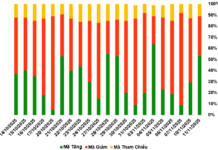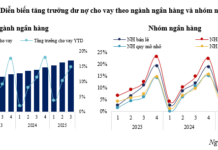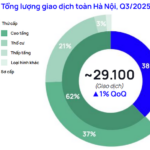
Starting from September 2024, Vietnam will stop using 2G technology. However, users with simple needs can still own new generation 4G “brick” phones. Depending on the model, aside from basic calling and messaging functions, these devices can support internet access, and some even come pre-installed with Facebook and Messenger applications. These models have affordable prices, typically only costing a few hundred thousand Vietnamese dong, and are designed to be user-friendly for people who prefer not to switch to smartphones, especially the elderly.
Viettel, a leading Vietnamese telecom company, has introduced multiple feature phone and affordable 4G smartphone models along with unprecedented promotional campaigns. Specifically, Viettel Telecom offers up to 50% discounts on select cheap 4G phones with calling capabilities (as low as 290,000 VND per device). Customers who successfully switch to 4G and use smartphones will receive 28GB of high-speed data and free data when using the TV360 app.
The decision to cease 2G operations is in line with the global trend amongst countries and major network providers, who find that outdated technology no longer aligns with current trends and advancements. According to VNPT, the majority of countries and network providers transition away from 2G networks due to these reasons.
VNPT states that it will maximize support for customers during the transition from 2G phones. Initially, the company will offer 30GB of free high-speed data (for eligible customers who receive promotional messages). This program will run from January 9 to September 15, 2024. Moreover, the network provider has prepared multiple solutions to ensure customer rights and experience are not affected during the 2G network shutdown.
To promote the migration from 2G to 4G, the Vietnam Telecommunications Fund plans to allocate budget to support low-income households and remote areas with around 400,000 mobile phones. In addition, some provinces and cities have their own plans to support financially disadvantaged households that are not eligible for support from the Telecommunications Fund.
Coexistence of 4 Technologies is Infeasible
According to the Ministry of Information and Communications, as of September 2024, Vietnam will no longer use 2G technology. “Brick” phones that only support 2G for voice calls and text messages will have to be replaced with phones that support 4G. Explaining the reason for shutting down 2G, Mr. Nguyen Phong Nha, Deputy Director of the Telecommunications Department of the Ministry of Information and Communications, stated that Vietnam will issue licenses for 5G. With the introduction of 5G networks, it is impossible to simultaneously maintain 2G, 3G, 4G, and 5G technologies on the same network infrastructure due to the high costs and operational complexity. Shutting down 2G will help free up frequency bands for the development of 5G and 6G in the future, as well as spur digital transformation and bring Vietnamese people into the digital era.
VinaPhone, a Vietnamese telecommunications company, has conducted 5G trials in 55 provinces and cities. Therefore, shutting down 2G aims to optimize frequency planning, network infrastructure, and reduce costs to meet the requirements of the national digital transformation process. Viettel representatives stated that permanently shutting down the 2G network is crucial in utilizing frequency resources for modern telecommunications technologies, aligning with current development trends.
Globally, Japan was the first country to completely shut down 2G networks in 2010. According to a recent survey on Reddit, 102 countries have successfully discontinued 2G networks and are now promoting other mobile network technologies. In neighboring China, the three largest network providers – China Mobile, China Telecom, and China Unicom – are also in the process of switching off 2G and 3G networks to transition to 4G or 5G networks.



































